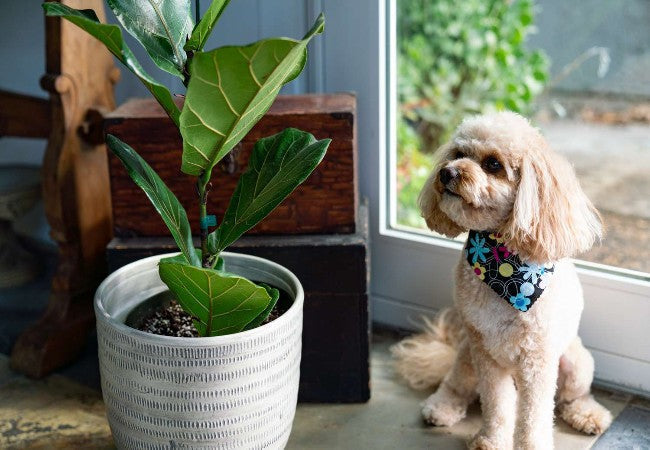Top Holiday Plants Toxic to Dogs: Vet‑Approved 2025 Safety Guide 🩺🐶

In this article
Top Holiday Plants Toxic to Dogs: Vet‑Approved 2025 Safety Guide 🩺🐶
By Dr. Duncan Houston BVSc
Adding festive greenery can brighten your home, but some popular holiday plants pose real danger to dogs. Here's a 2025 vet‑approved breakdown to keep your celebrations joyful and safe! 🩺
1️⃣ Mistletoe
Both American and European mistletoe contain toxins that can cause vomiting, diarrhea, difficulty breathing, low blood pressure, and slow heart rate. Large ingestions may be life-threatening.
2️⃣ Holly (Ilex spp.)
Leaves and berries contain saponins that may cause drooling, vomiting, diarrhea, lip‑smacking, and head‑shaking. Sharp leaves also pose a choking hazard.
3️⃣ Yew
Common in wreaths, yew is highly toxic—even small amounts can induce tremors, difficulty breathing, vomiting, seizures, and sudden death from heart failure.
4️⃣ Amaryllis
The bulbs and greenery contain lycorine which often leads to intense vomiting, diarrhea, abdominal pain, drooling, lethargy, and tremors.
5️⃣ Azalea & Rhododendron
Although not as iconic as other holiday flowers, azaleas and rhododendrons are still used in décor. They contain grayanotoxins that can cause vomiting, diarrhea, weakness, and abnormal heart rate.
6️⃣ Daffodils & Tulips
Daffodils contain lycorine and tulip bulbs are irritating—both can cause vomiting, diarrhea, drooling, and heart or breathing issues in larger exposures.
7️⃣ Poinsettia
Contrary to myths, poinsettias are only mildly toxic, causing mild gastrointestinal upset like nausea, vomiting, or diarrhea. Large ingestions are unlikely to be fatal.
8️⃣ Lily Family (Non-True Lilies)
Peace lilies aren’t deadly like true lilies, but contain calcium oxalate crystals—they can cause mouth irritation, drooling, and nausea.
📋 Quick Hazard Summary
| Plant | Toxins | Dog Health Risks |
|---|---|---|
| Mistletoe | Lectins (viscotoxin) | GI upset, low BP, slow HR, breathing problems |
| Holly | Saponins, sharp leaves | GI upset, drooling, choking hazard |
| Yew | Taxine alkaloids | Tremors, seizures, heart failure, sudden death |
| Amaryllis | Lycorine | GI distress, drooling, tremors, lethargy |
| Azalea | Grayanotoxins | Vomiting, diarrhea, weakness, heart issues |
| Daffodil/tulip | Bulb toxins | GI upset, drooling, cardiac/resp problems |
| Poinsettia | Milky sap | Mild GI upset |
| Peace lily | Calcium oxalate | Mouth irritation, drooling, nausea |
🛡️ Safety Tips for Dog Owners
- Place plants out of reach or use artificial alternatives.
- Secure Christmas trees to prevent needle ingestion—tree water can also upset your dog's stomach.
- Act immediately: If ingestion is suspected, call your vet or poison control right away—even before symptoms appear.
- Know the symptoms: Be alert for drooling, vomiting, diarrhea, tremors, weakness, breathing difficulty, or unusual behavior.
🎁 Pet‑Safe Holiday Plant Substitutes
- Christmas cactus (non-toxic)
- Bromeliads, African violets, orchids—safe festive blooms
- Artificial or dog-friendly décor to keep your pup safe and happy!
🔍 Final Thoughts
Holiday plants can add cheer—but also danger for curious pups. With proper knowledge and a few smart precautions, you can create a festive, dog-friendly home in 2025. Stay festive and safe! 🎅🐾
If your dog eats something suspicious or shows concerning signs, don’t wait—call your vet or the ASPCA Poison Control. You can also download the Ask A Vet app for instant expert advice during the holidays. 📱🩺






